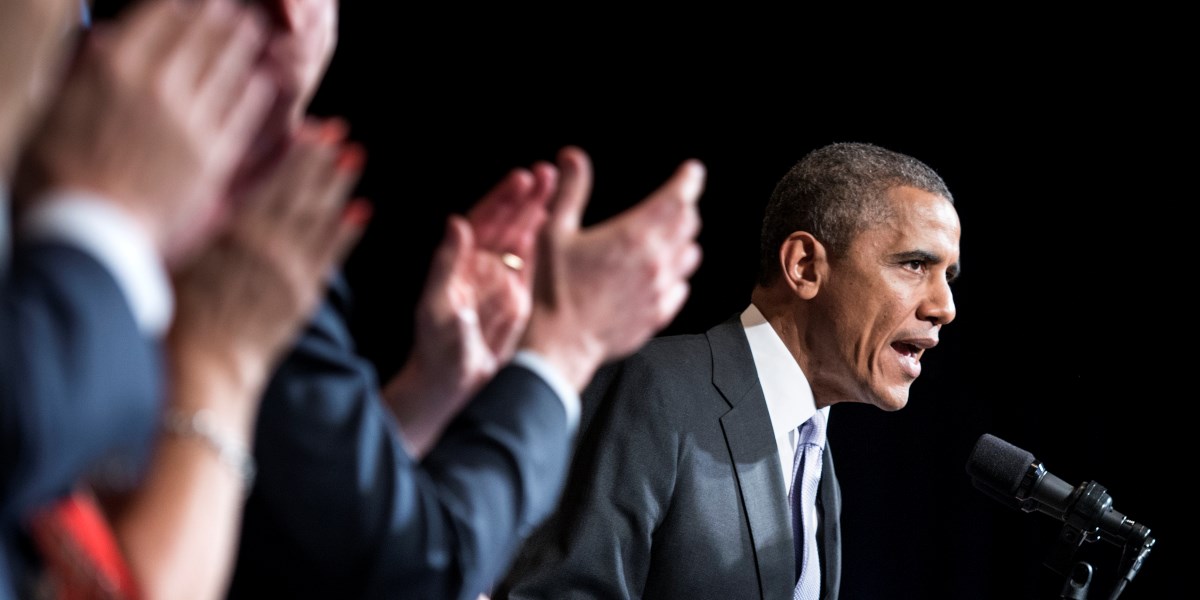
A Frustrated and Disappointed Superpower
With 10 months left for his administration, President Obama's attitude seems to mirror those of the cliché Hollywood action heroes
Share
In Hollywood action movies there is a well-known and frequently adopted plot in which the hero, the only hope of the people, has some kind of depression or identity crisis. Despite the danger that different threats pose to the people, our hero is an alcoholic or suffers from a lack of self-confidence and even questions the purpose of life. For example, in one of the best of the "Die Hard" series, the third movie, "Die Hard with a Vengeance" from 1995, directed by John McTiernan, we see a prototype of this volatile and frustrated hero who is the only hope of the city in John McClane, as played by Bruce Willis. In this film, the brother of Hans Gruber, the head of terrorists that McClane killed in the first "Die Hard," Peter Simon Gruber, organizes various terrorist acts in New York to distract the security forces in the city so he can steal gold from the Federal Reserve Bank, and more personally, take revenge on McClane.
While he commits these crimes, McClane tries to find the bombs planted in the city, catch Gruber and deal with his personal crisis with his wife Holly. In fact, finding a new purpose in life saves him from further going down the spiral of a lack of self-confidence and crises in his personal life in part with the help of his accidental partner Zeus. While reading Jeffrey Goldberg's lengthy interview with U.S. President Obama in The Atlantic monthly last week, I could not stop thinking about these action movie clichés and crises of identity of superpowers in international relations. There are so many things to write about the interview and Obama's statements about crises in different parts of the world, such as the background of the chemical weapons deal with Syria, which we earlier thought was Moscow taking advantage of U.S. Secretary of State John Kerry's impromptu suggestion about the possibility for Bashar Assad to rescue himself from U.S. airstrikes and his opinion about the war in Libya.
There are also too many confusing statements, such as his critique of Turkey for not using its "enormous military" to bring stability to Syria. For an administration that resisted the idea of a no-fly zone and championed the "no boots on the ground" talking point, it is troubling to hear this kind of accusation of a NATO ally. Obama seems to be disappointed by so many U.S. allies and friendly countries. Through these expressions of disappointment, we understand that frequent leaks about U.S. frustration come directly from Obama. And it should not be forgotten that Obama is also angry at foreign policy think tanks and observers in Washington. Of course, he also appears frustrated with the lack of development and resolution in many different crises around the world.
So far, the U.S. administration has been labeled an indecisive administration that spends too much time deliberating when making decisions without taking serious and timely action. And so far, we thought that the administration's most significant foreign policy motto was "Don't do stupid shit." However, while being indecisive and avoiding any risky action, the president of the world's superpower seems to accumulate a lot of disappointment, anger and frustration. It looks volatile, fragile and confused. It increasingly looks like the hero needs a sense of purpose in the world.
[Daily Sabah, March 14, 2016]
Tags »
Related Articles






